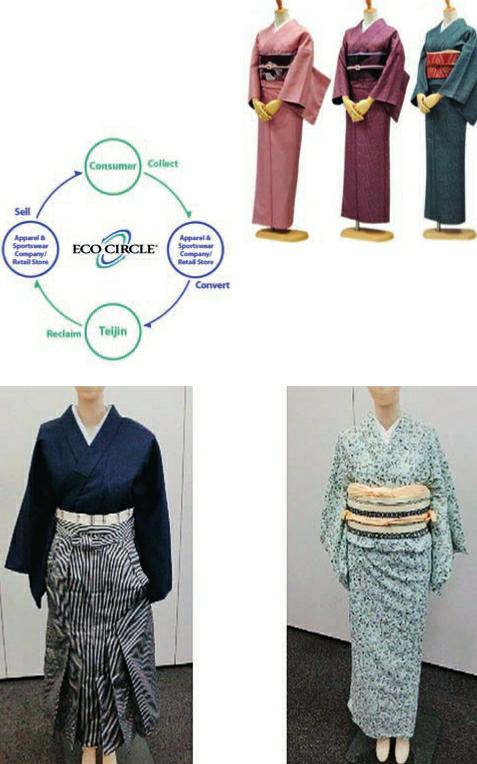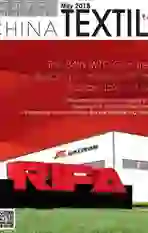Teijin to provide polyester kimonos for Japan pavilion at Expo Milano 2015
2015-12-31
Teijin Limited announced that it will support Japans exhibition at Expo Milano 2015 in Milan, Italy from May 1 by providing full sets of Japanese kimonos and accessories made with the Teijin Groups polyester fabric that does not sacrifice beauty to provide exceptional functionality. The kimonos will be worn by waitresses at Minokichi, a Japanese restaurant within the Japan Pavilion, during the halfyear expo.
Teijins fabric features deep, vivid colors and an elegant luster, yet is also washable and wrinkle resistant. Combining beauty with functionality, it is an ideal material for kimonos in a high-class Japanese restaurant, where the waitresses must serve food and drink with both grace and refinement. Teijin hopes that the lovely yet highly practical kimonos made with the Teijin material will contribute to the introduction of Japanese food culture and Japans ancient tradition of providing guests with deeply satisfying culinary experiences.
Moreover, after the expo, the kimono fabric contributed by Teijin can be recycled with Teijins ECO CIRCLE, the worlds first closed-loop recycling system, which turns used polyester into new fibers that offer the purity and quality of petroleum-derived fibers. The ECO CIRCLE global system is a leading example of Teijins many efforts to contribute to more sustainable societies.
Expo Milano, under the core theme of “Feeding the Planet, Energy for Life,” will address a wide range of foodrelated themes. The Japan Pavilion, under its own theme of“Harmonious Diversity,” will introduce Japans agriculture, forestry and fishing industries and various initiatives regarding food. It will also present Japanese food-culture concepts and techniques, including traditional values such as discouraging wastefulness, which offer practical usefulness in addressing food security, sustainability and related global issues.
ECO CIRCLE
Teijins chemical recycling technology, a first of its kind in the world, makes it possible to refine old polyester into new polyester raw material equivalent to that made from petroleum. For example, an old and worn out polyester fleece and coat can be recycled into a new fleece and coat over and over again. Moreover, this technology reduces both energy consumption and CO2 emissions drastically when compared to using oil to make new polyester raw materials.
